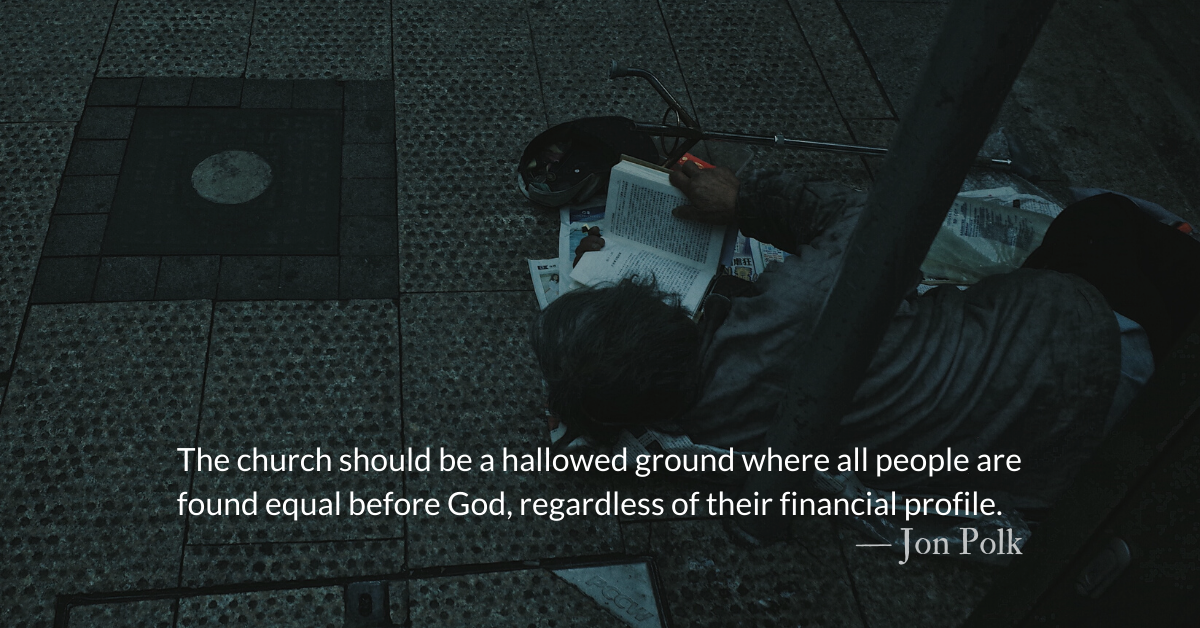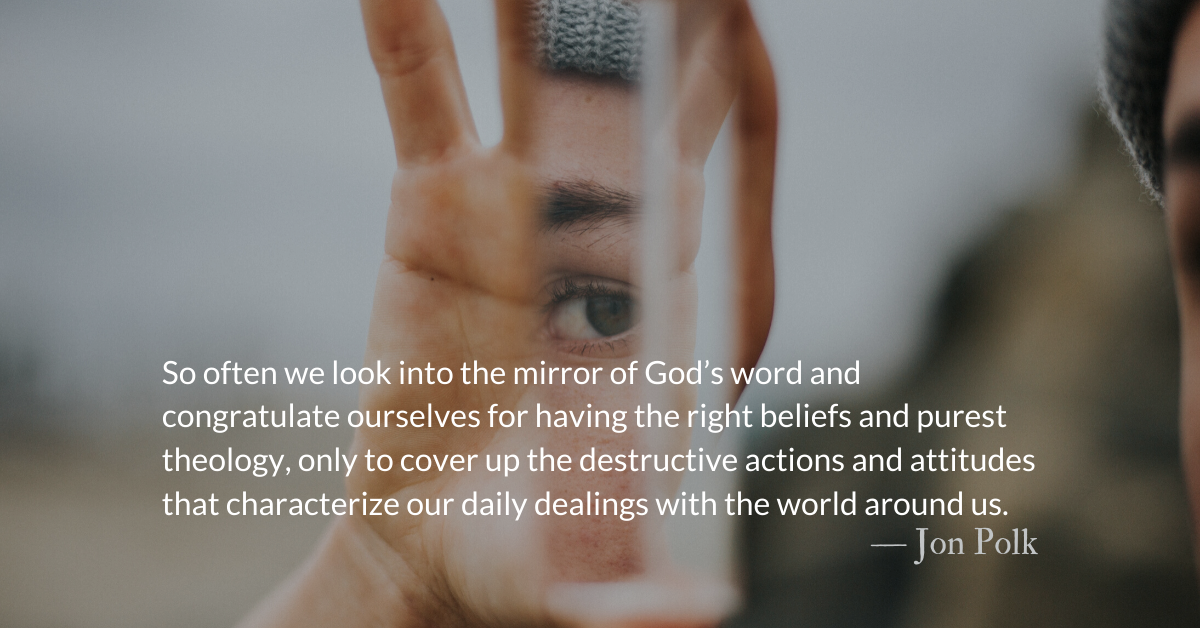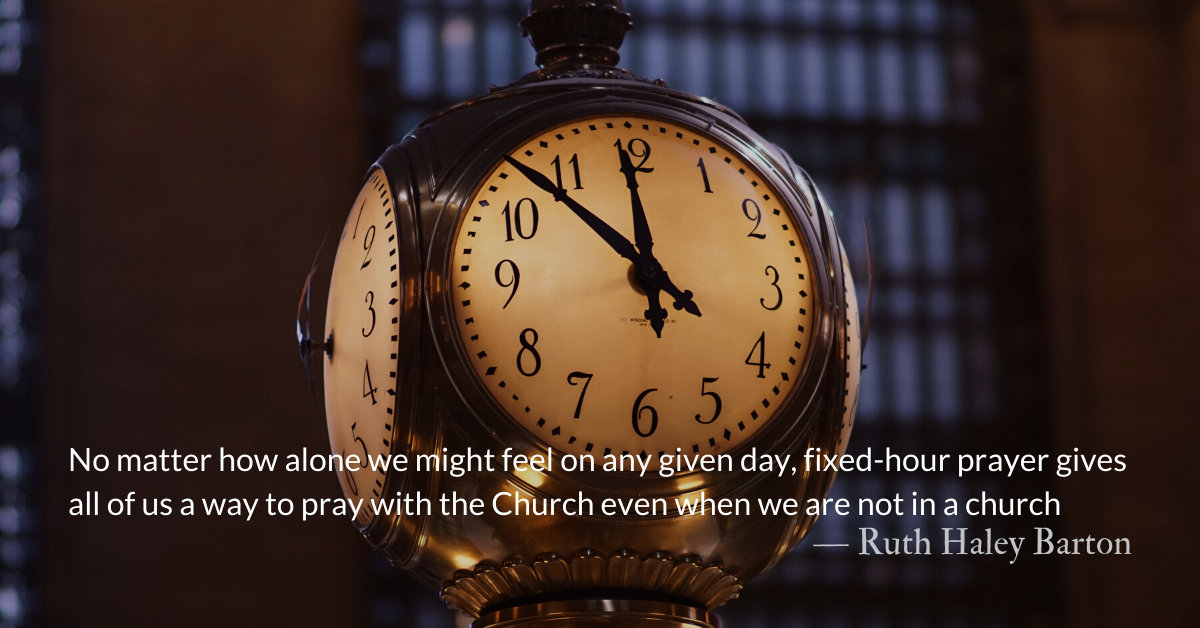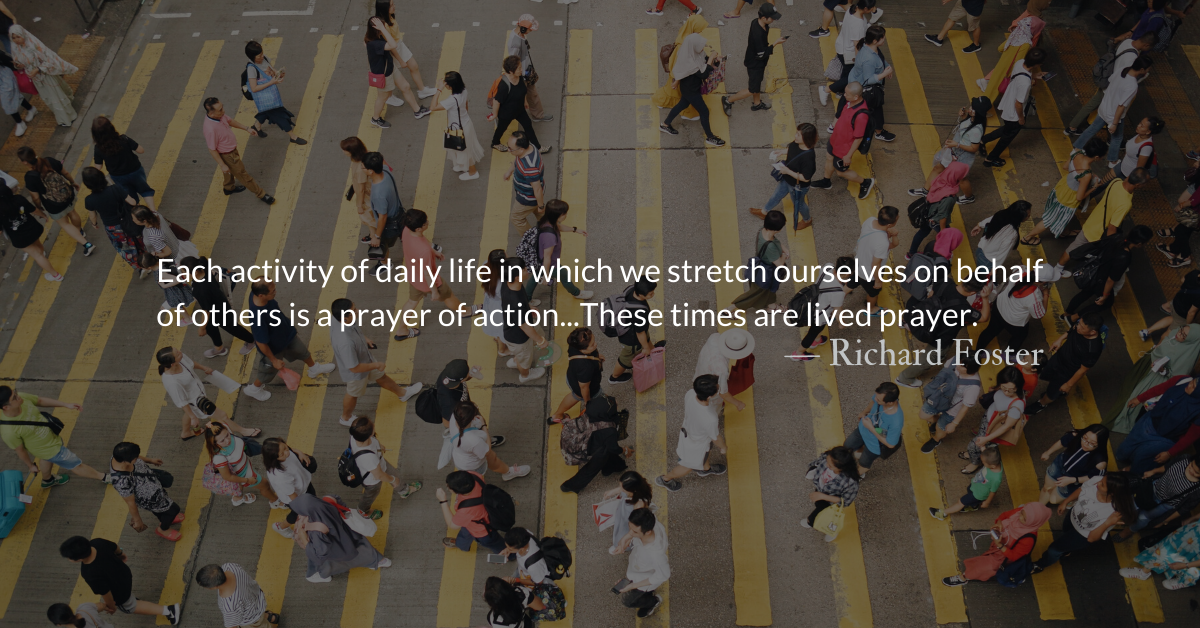Scripture Focus: James 3:9-11
With the tongue we praise our Lord and Father, and with it we curse human beings, who have been made in God’s likeness. Out of the same mouth come praise and cursing. My brothers and sisters, this should not be. Can both fresh water and salt water flow from the same spring?
Reflection: If You Can’t Say Anything Good
By Jon Polk
Reading through James’ letter, one might get the impression that he has a pretty pessimistic view of our ability to control our speech with one another.
Without a tight rein on our tongue, our religion is worthless. (1:26)
No one is faultless in what they say. (3:2)
The tongue is a fire, a world of evil in the body. (3:6)
The tongue corrupts the whole person, set on fire by hell itself. (3:6)
The tongue is an untamable, restless evil, full of deadly poison. (3:8)
With our speech we curse one another. (3:9)
We slander and judge one another by our speech. (4:11)
We selfishly brag and boast. (4:16)
We grumble and complain against each other. (5:9)
Ouch.
Honestly, though, it sounds as if James could have been writing these words in 2019 rather than in the first century AD. And when he refers to our speech, we should certainly include our tweets, posts, and texts.
Before we start pointing our fingers at the world around us though, let us be reminded that James was writing not to unbelievers, but to an audience of those claiming to follow the way of Christ. Unfortunately, we know all too well based on our experiences (not the least of which is the unflattering stereotype of the church business meeting) that Christians can be the worst about using our words to wound rather than to speak grace and love.
We know this so well, in fact, that the Christian band Third Day turned James 3 into an unlikely #1 rock hit with the song, Nothing At All, from their debut album in 1996.
“Well, on and on and on and on and on it goes
Now look who’s the one playin’ the fool
Criticizing, telling lies, putting down
Ain’t you got nothin’ better to do?
But if you can’t say nothin’ good, don’t say nothin’ at all”
But wait! There is hope! James also says that with our mouths we can speak on behalf of God (5:10), pray for ourselves (5:13) and each other (5:16), sing songs of praise (5:13) and confess our sins (5:16).
When we learn to control our tongues, we can bring great teaching, healing and joy to many.
Dietrich Bonhoeffer’s rule for the students of his seminary classes was that no one should speak about another student in their absence. Many of his former students admitted they frequently broke this rule, but they learned a great deal from their mistakes about the power of our words to damage the body of Christ.
Oh, how would our speech be different today if we tried to follow Bonhoeffer’s rule?
*Song, “Nothing at All” by Third Day
Divine Hours Prayer: The Refrain for the Morning Lessons
No good thing will the Lord withhold from those who walk with integrity.—Psalm 84:11
– From The Divine Hours: Prayers for Autumn and Wintertime by Phyllis Tickle.
Today’s Readings
1 Chr 16 (Listen -5:21)
James 3 (Listen -2:38)
Thank You!
Thank you to our donors who support our readers by making it possible to continue The Park Forum devotionals. This year, The Park Forum audiences opened 200,000 emails with free, and ad-free, devotional content. Follow this link to join our donors with a one-time or a monthly gift.
Read more about Waiting at the Beautiful Gate
Jesus has left his church work to do in this world. They are waiting for us at the Beautiful Gate. We are their miracle
Read more about The Language of a Good Neighbor
The words we speak plant seeds that come from our hearts. When those seeds are violent winds, we reap the whirlwind of violent actions.
Read more about Killing With our Hearts
We rush to soften Christ’s teaching about violent thoughts and words because we are unwilling to let go of them.











